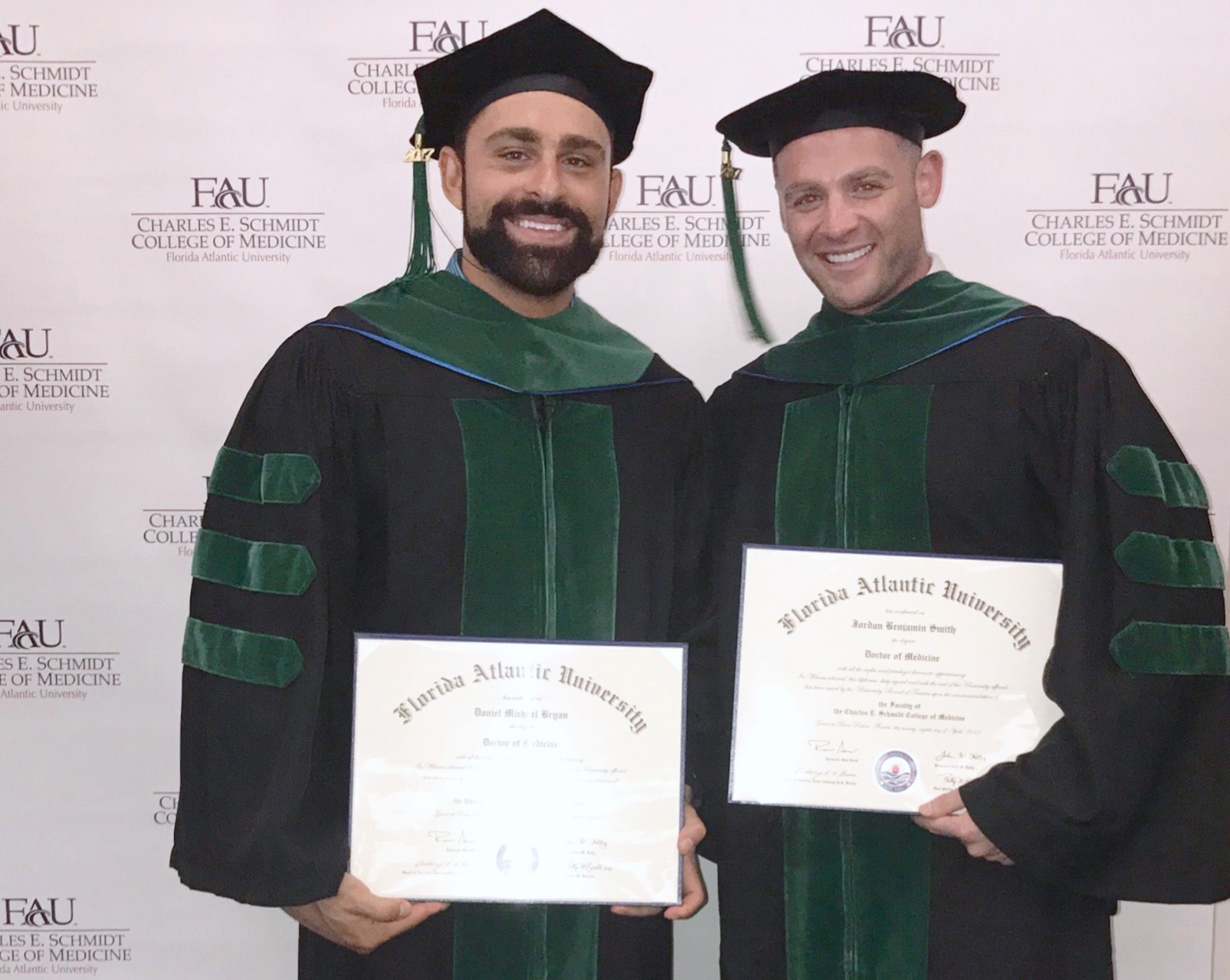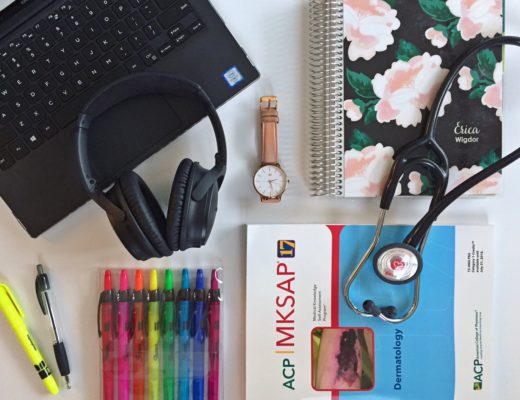As we near the end of June, there are newly minted doctors everywhere about to start orientation all over the world. This orientation is different than the others because this is the beginning of residency, which means you are finally going to rock that long white coat. Not only is there a level of achievement with this new accessory to your wardrobe, but also new responsibilities. #notreadytoadultyet

Photo by @the.physicians.kitchen
I remember the first day I put on my long coat; my name was on it like my old one, but instead of ‘student’ it said ‘resident.’ I was cheesing soo hard that day. I also remember being so eager to finally have my own pager (boy did that feeling change quickly). There were so many emotions happening all at once during orientation week; excitement and accomplishment, but also some fear and uneasiness. As each day of orientation passed and my first day of residency neared, the enthusiasm peaced out and the anxiety really kicked in.
Starting residency is something we all wait for our whole lives, but it can also be a little overwhelming. Now that I am in my last few weeks and about to become an attending (oh em gee where did those three years of my life go?!), I wanted to give you guys some tips that were helpful to me during residency training, with an emphasis on how not to freak the eff out during your first few months.

Photo by @mike.natter
Let me start off by saying that I promise you, there is really nothing to be THAT scared of. When you break it down and think about it realistically, there will always be (at least) one person watching over everything you do, if not more. Whether it’s a senior resident, attending, or someone else, these people are here to watch you succeed, not to watch you fail. There will obviously be some seniors who will want to be more involved in the care of your patients than others, but no one is going to make you manage a patient completely on your own, especially not during your first few months. (This isn’t sink or swim).
That being said, if you are not sure about something and your senior resident hasn’t addressed it with you yet, don’t ever hesitate to ask. There were definitely times when I felt like I was asking stupid questions (even though they say there is no such thing), but if you don’t ask, you will never learn. It’s O.K. to feel unsure of what you’re doing at first, and asking questions will only help you become a better physician in the future. I didn’t become really confident until after I ran my own medicine team as a second year resident, and even then I still had questions (that’s what residency is for, to learn, even if it is from your own mistakes).

Photo by @doctor.alixandra
Don’t ever forget you have multiple people looking out for you. Not just other residents and attendings, but nurses, pharmacists, radiologists, etc- they are always available to answer questions, and most of them enjoy being able to teach you a few things that they know as well. Side note: Be nice to everyone. You never know when you will need help from someone, and the saying is 100% true, “you will attract more bees with honey than with vinegar” (thanks mom).
Start by covering the basics; one of the easiest things you can do to prepare for your transition is to get to know the EMR system. If you did an audition rotation where you will be training, you will already be somewhat familiar with the computer system, but if not, it’s a good idea to sit down and explore. EMR can either be your best friend or your worst enemy depending on how well you know how to use it. Ask those ahead of you if they have any pointers; I didn’t figure out all the tips and tricks to mine until halfway through my intern year, and my life would have been so much easier if I had done this sooner.

Photo by @e_guo
Another thing you can tackle right away is making sure you address the little things you are confident enough to do on your own. Examples of this includes replacing electrolytes, making sure patients have PRN medications for headache and nausea, etc; Basically, taking care of minutia will eliminate you getting paged for things you could have easily avoided.
Something I did to help me with this was to fill out templates with my patient’s information. These templates included a brief background of each patient, daily labs, meds, allergies, things already done, and things pending (I’ll attach one to the bottom of this article for you guys). If you put a box next to each item you need to do or order, and check it off as it gets done, you won’t forget to do these things as the day progresses.

Photo by @dan_arms
One more tip that I thought was insanely important during residency- take notes! Always have a small notebook handy and if someone is telling you a pearl, giving you valuable information, or just sharing one of their experiences with you, Write. It. Down. You may not think it’s important at that moment, but when you find yourself in a similar situation, you will wish you had it documented somewhere to go back to. In addition, don’t hesitate to look things up, and always have something handy as a reference (also, please purchase a Pocket Medicine if you don’t own one already).

Photo by @danamic_do
Lastly, if you are feeling more anxious than you expected, just remember that you’re not alone. There are plenty of others feeling the exact same way as you are, and the people who are now supervising you were once in your shoes as well. Not only do your fellow residents have your back, but don’t forget all of the family members, loved ones, and friends who are cheering for you too. They are your biggest fans, and you will always have someone to hand you a tissue or take a shot with you when the time calls for it.

Photo by @rebeca_kelly
Congrats again to all of the new med school graduates, and any other grads out there about to start at a new chapter in your life. You are all going to kill it (seriously though, no pun intended).
XoXo -Erica
Admission Template:



No Comments